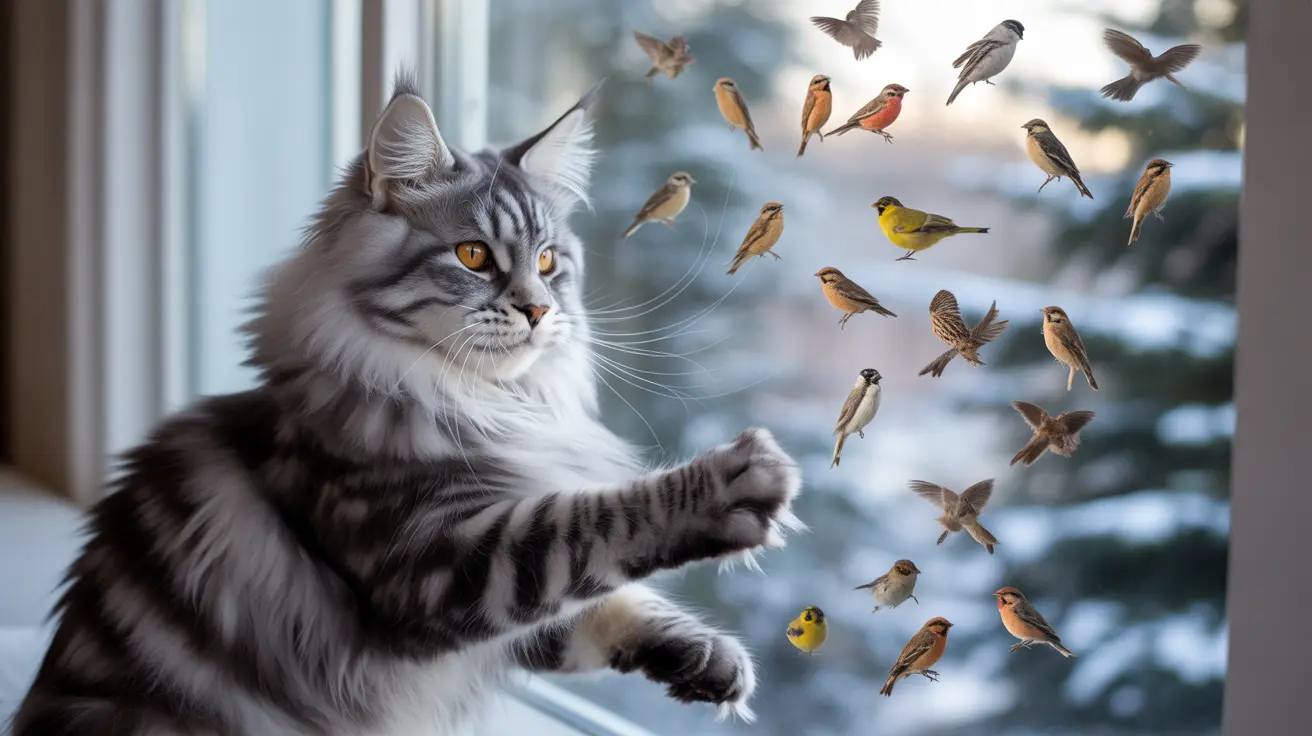Natural Instincts Behind Window Scratching
Cats are natural hunters, and windows provide a front-row seat to the outside world's entertainment. When your cat sees birds, squirrels, or other wildlife, their predatory instincts kick in, often resulting in scratching or pawing at the window. This behavior is particularly common in indoor cats who may feel frustrated by their inability to reach potential prey.
Additionally, cats have scent glands in their paws, and scratching serves as a way to mark territory. When they scratch at windows, they're not just reacting to outside stimuli – they're also leaving their scent markers.
Environmental Triggers and Emotional States
Window scratching isn't always about hunting instincts. Sometimes, this behavior can indicate:
- Desire to go outside
- Territorial response to outdoor cats
- Reflection confusion
- Boredom or lack of stimulation
- Anxiety or stress
Understanding these triggers is essential for developing effective solutions to manage the behavior.
Preventing Window Damage and Managing the Behavior
While window scratching is natural, it can damage your home and potentially harm your cat. Here are several effective management strategies:
Create Alternative Entertainment
Provide engaging alternatives such as:
- Cat trees near windows with secure perches
- Interactive toys and puzzle feeders
- Scratching posts positioned near favorite windows
- Regular play sessions to expend energy
Modify the Environment
Make windows less appealing for scratching by:
- Installing window guards or screens
- Using deterrent sprays (cat-safe varieties)
- Placing double-sided tape on windowsills
- Adding window perches for comfortable viewing
Long-term Solutions and Training
Consistency is key when addressing window scratching behavior. Implement these long-term strategies:
- Establish regular play routines
- Provide multiple scratching alternatives
- Use positive reinforcement when your cat uses appropriate scratching surfaces
- Consider creating a catio or safe outdoor space
Frequently Asked Questions
Why does my cat scratch the window when it sees birds or squirrels outside?
This is a natural predatory response. Your cat is attempting to catch what they perceive as prey, even though there's a barrier. This behavior is driven by instinct and is especially common in indoor cats.
How can I stop my cat from scratching the window without upsetting them?
Redirect their behavior to appropriate scratching surfaces, provide enriching alternatives like cat trees and toys, and use positive reinforcement. Never punish your cat for scratching, as this can create anxiety and worsen the behavior.
Is my cat scratching the window to mark its territory or for another reason?
Window scratching can serve multiple purposes, including territorial marking (cats have scent glands in their paws), predatory behavior, and attention-seeking. Often, it's a combination of these factors.
What are the best ways to protect my window screens from damage caused by my cat's scratching?
Install sturdy pet-proof screens, use deterrent sprays, place scratching posts near windows, and consider window guards or protective covers. Providing alternative entertainment can also reduce screen damage.
Can boredom or stress cause my cat to scratch at the window, and how can I help?
Yes, boredom and stress are common causes of excessive window scratching. Help by providing environmental enrichment, regular play sessions, interactive toys, and ensuring your cat has plenty of stimulating activities throughout the day.
Conclusion
Window scratching is a natural behavior that can be effectively managed with patience and the right approach. By understanding your cat's motivations and implementing appropriate solutions, you can protect your windows while keeping your feline friend happy and engaged.
Remember that each cat is unique, so you may need to try different combinations of these strategies to find what works best for your pet. With consistent effort and positive reinforcement, you can help your cat develop better habits while still enjoying their window-watching activities.






